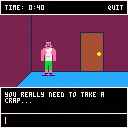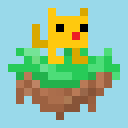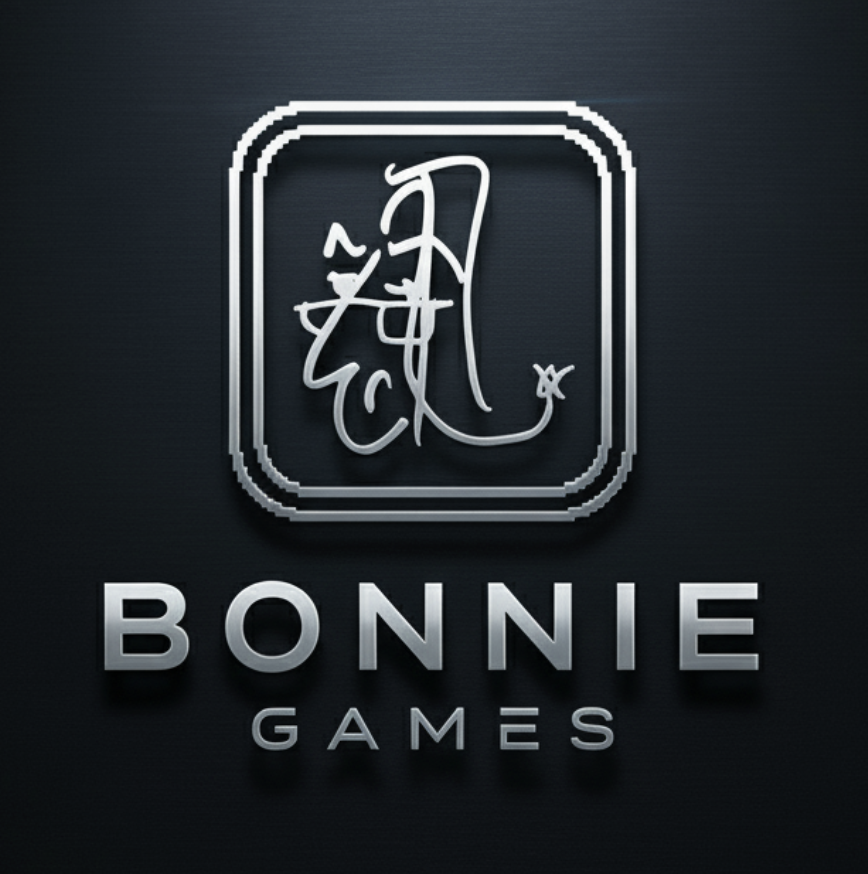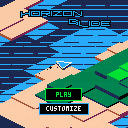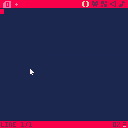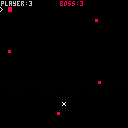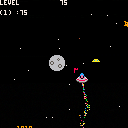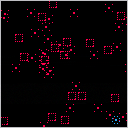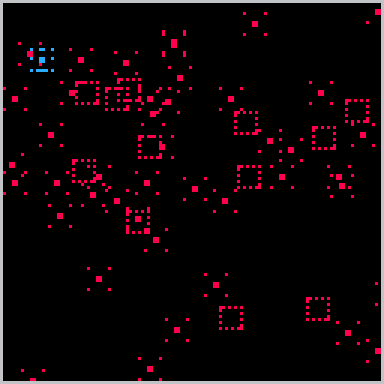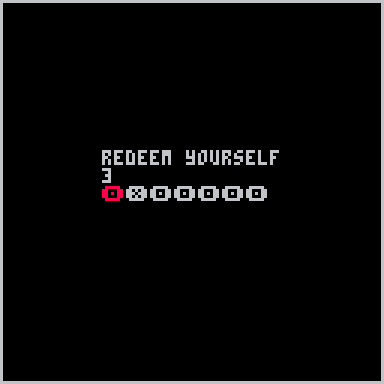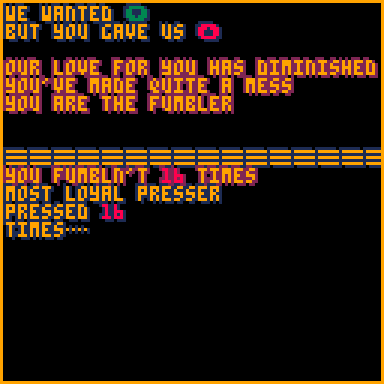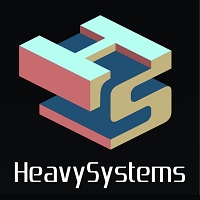Horizon Glide
Battle through infinite isometric worlds in this arcade hover-ship shooter!
About
Horizon Glide is an infinite isometric arcade shooter where you pilot a hovering ship through endless procedurally generated landscapes. Navigate dynamic terrain, manage your ammo, and survive against enemy forces in this unique blend of exploration and combat.
Features
- Procedurally generated infinite worlds - Every playthrough is unique
- Isometric 3D perspective - Classic arcade viewpoint built entirely in PICO-8
- Dynamic terrain generation - From water levels to mountain peaks
- Combat system - Battle enemy ships while managing limited ammo
Spy vs spy demake

One mission. One rival. One survivor.
Game overview
A faithful retro demake of the classic console/computer spy duel.
Collect all five secret items and escape through the airport before your rival.
Set traps to slow him down, and find antidotes to avoid his tricks.
Search furniture, outsmart your opponent, and be the first to get away!
26 levels available.
Play against human or computer.
Any feedback/suggestion is welcome.
Controls
Exploration mode
ARROWS: Move inside rooms
X: Search for items
Does not work on the BBS
This game is multiple cartridges (mapdata and stage selector) - which doesn't work on the BBS.
See the itch.io or neocities for a playbale version!
https://astralsparv.itch.io/slidetrack
https://astralsparv.neocities.org/creations/play/slidetrack/
The original Slidetrack (predecessor to Slidetrack Expanded) - now open sourced!
Copied from ITCH.IO:
Slidetrack is a short relaxing game made in Pico-8 consisting of 4 stages and 32 levels.
You finish each level by solving simple puzzles to reach every tile.
Using a downloaded copy, you can save your times for each stage and speedrun the stages for the fastest times
Controls
Arrow Keys - Movement
Z - Toggle the touchscreen
X (Hold) - Restart the level
Enter - Open the menu (when in a level)

This is a P8 adaptation of a "Rainbow Magazine" type-in video game called "Penguin Icarus" by Nick Bradbury for the Tandy Color Computer 3. Although the level layouts are different the game play is mostly the same, but faster and with more sound effects, particles and more. The code has not been optimized!
You are a penguin in envy of the other small birds and the large metal birds that fly high in the sky and dream of one day flying...


A classic vertical shoot-em-up reminiscent of a famous space war movie. Written and created by a 9-year-old with the help of his dad.
v2025.6
The following changes have been introduced:
- Implemented highscore recording
- Implemented highscore initials
- Eliminated continuous fire
- Translated the help from Italian to English
[Thanks to Heracleum for the valuable advice!]
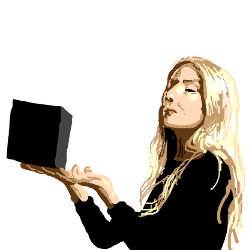


I'm running Pico-8 0.2.7. When I use the underline P8SCII code together with the double-wide character P8SCII code I get an interrupted line.

Also, while we are discussing P8SCII interactions, here are two odd behaviors that could also be intended behavior:
-
Double-tall P8SCII code doesn't make the underline two pixels tall. I would have expected it to be so, but I would understand if this was intended.
- Outline doesn't seem to be drawn around the underline. Personally, I would prefer if it did get drawn around every foreground pixel.

Simple, interactive demo of a custom masking technique I was playing around with for fun.
A good example of an application of bitwise logic in computer science!
← and → to change the background fill to emulate changing opacity
(x) [x] to toggle masking effect
(o) [z] to show only the mask layer
The pulsing background is drawn into screen memory at 0x6000.
Shapes and background fill for the mask layer are drawn into memory at 0x8000 with color 15.
Four bytes each from 0x6000 – 0x7FFF and 0x8000 – 0x9FFF are compared with a bitwise AND operation (band()) and the result is written directly to screen memory.
There's not a lot to it besides that, but I thought it looked cool and wanted to share.

I'm not quite sure this is a bug and not intended behavior, but I can't see why it would be intentional; at least for my use case, it's quite an annoying quirk that I really can't come up with any good workaround for.
Here's an example of where this gets in the way:


I started using one-off characters to insert 5x5 icons into text, but it seems that as soon as the line has ANY one-off characters, print thinks that since it could theoretically take up to 8x8 pixels, the line height should be increased to 8.
For the width of the characters, I actually just add \-e at the end of each icon, so that the icon takes up 6 pixels horizontally; but I wasn't able to find any way to correct the line height - this behavior seems to completely override \^y as soon as a one-off character is present.
(in fact, bizarelly, setting line height to lower than 6 reveals that print will actually crop away the pixels of all characters EXCEPT for one-offs, while the vertical spacing remains at 8:)
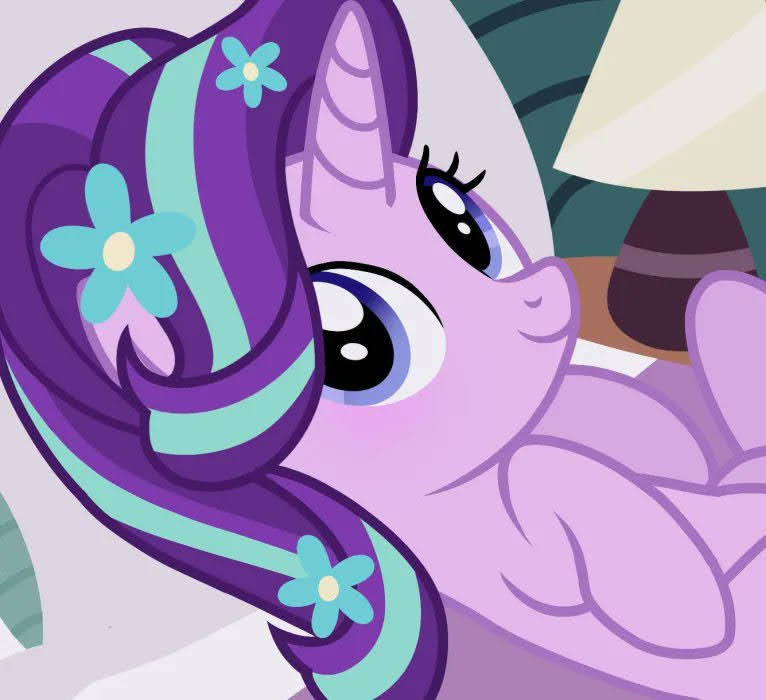
 Hello!
Hello!
This is my first game, so I hope you enjoy it.
Paddy Kapow is an interdimensional burgerpatty, that can send an eplosive shockwave outward from its body. It uses this power to avoid getting hit by varies sized scoops of raspberry iscream, while flighing throw space.
I have made a few changes, and added a highscore list, so everyone who plays, can earn bragging rights.


Small tool / sample code to show off how to encode a 1-bit bitmap into CARTDATA. Uses the ability to utilize multiple CARTDATA IDs per Cart introduced in 0.2.7
Usage
- Use mouse and left mouse button to paint
- Use the menu to save, load or clear the image
- The image will also automatically load on _INIT
Functions for encoding are in Tab 1
As showcased in this video
Let me know if you have any questions!






.webp)

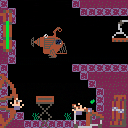
 0 comments
0 comments
